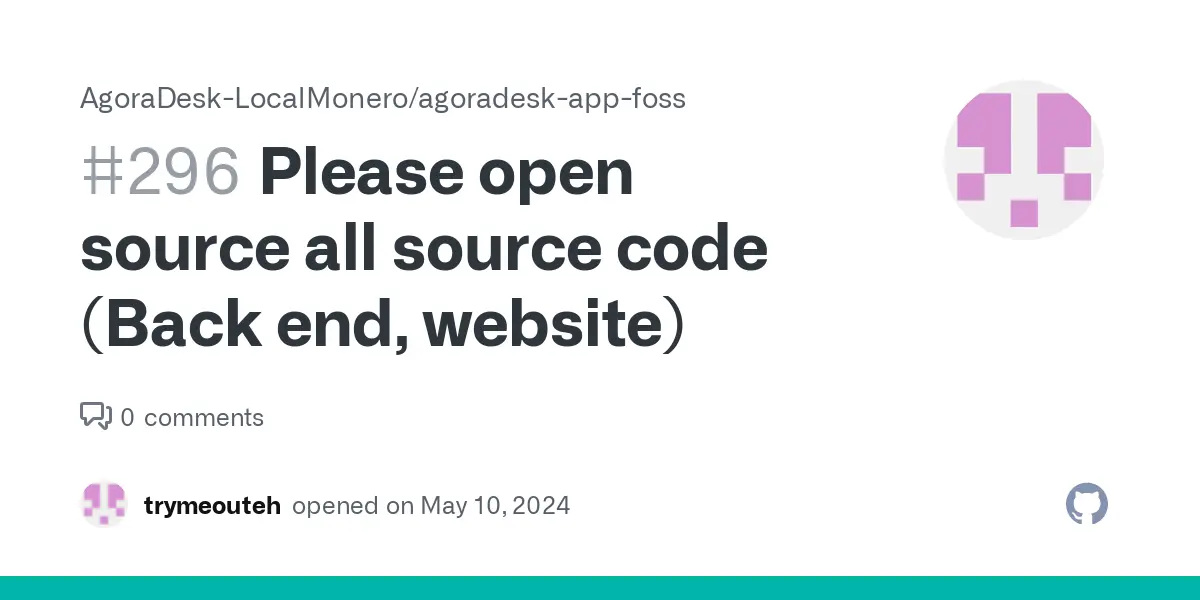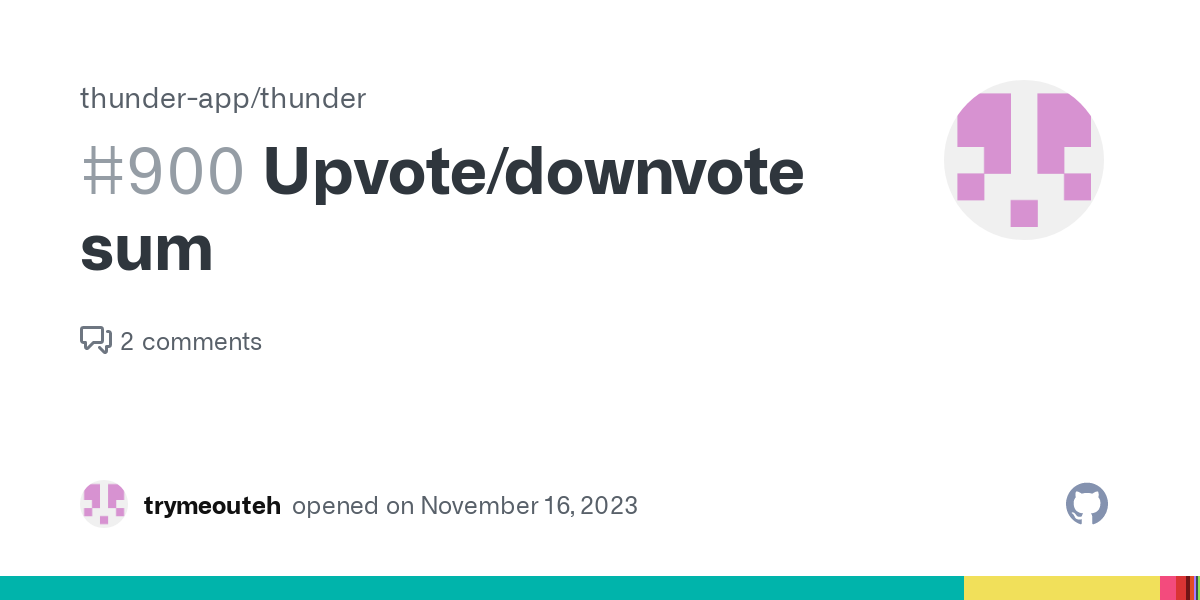- 26 Posts
- 21 Comments
Thank you Thunder devs for adding this feature fully into Thunder!

 3·4 months ago
3·4 months agoI think stablecoins will always have a centralized point of failure. Weather it is an algorithm, or having the coin backed by the actual asset.
I think the best stablecoins are backed by the asset 1 to 1 or a little more then 1 to 1. Most stablecoins that do this are token on smart chain contracts which have another vulnerability which is being a smart contract. Smart contracts could contain a vulnerability and if it does have a vulnerability, a new contract will need to be made and users will have to switch their old token to the new tokens. Also censorship is an issue. https://cryptonews.com/news/tether-takes-action-blacklists-validator-address-linked-25-million-mev-bot-drain-heres-what-happened.htm
And these stablecoins are not private. The only private stablecoin platform out there is Haven but Haven assets are not backed 1 to 1.
I hope there are plently of stablecoins issued on Zano in the future. Zano allows you to create an asset without creating a smart contract. All assets on Zano are private. I would like to see Tether, USDC and other issue stablecoins on Zano. Trusting the issuers on backing the stablecoin and trusting the issuer to secure their private keys to prevent hackers from inflating the asset will be the only vulnerabilities, but you will have privacy and a censorship resistant stablecoin!
If the AgoraDesk source code is released? Maybe? It can help anyone who wants to create a P2P trading platform. I think Haveno is written in Java and I have a hunch that AgoraDesk back end is not in Java.
https://github.com/AgoraDesk-LocalMonero/agoradesk-app-foss/issues/296
I hope AgoraDesk/LocalMonero will release all of their source code for their platform after they shutdown to allow anyone to fork it and start their own platform without having to build a platform and app from scratch
https://github.com/AgoraDesk-LocalMonero/agoradesk-app-foss/issues/296
Please upvote this issue if you want to see all the source code for AgoraDesk/LocalMonero be released!
The explore feature for the local instance has been made!!!
Please add the explore feature to explore the entire fediverse!

 1·6 months ago
1·6 months agoNot a bad idea as long all nodes will allow any wallet to recover all funds, not all transaction history, just balance.

 2·7 months ago
2·7 months agoI think all cryptocurrency blockchains that function as money or store of value should do this. However I think 1 years worth is better than 10 years worth of data, or perhaps even less than a years worth of data.
As long as the blockchain size remains small enough for the adverage Joe to store the entire chain onto their mining computer for when or if Monero reaches mainstream mass adoption usage. By mainstream mass adoption I mean Monero is used as much as Visa or Mastcard is globally which I would assume will mean that Monero will need to handle 1 million transactions per second.

 2·7 months ago
2·7 months agoThe customizable post metadata is amazing! Would like to see customizeable comment metadata if possible.
Thank you devs for allowing us to customize the upvote downvote display on comments and posts!

 591·7 months ago
591·7 months agoDiscord is the worst. Requires a phone number, does not allow email aliases and logs your chats.
Matrix and SimpleX is way better

 1·8 months ago
1·8 months agoThis has now been done with the latest release for comments! Please add a setting for posts!
I am considering just renting a server. The benefit of self hosting over a VPN is that I control my server completely, and I am not renting a server that I cannot physically reach.

 1·10 months ago
1·10 months agoI was also thinking of that. I want to game in bed before bedtime. Is there any good mounts or stands for a portable monitor that is ideal for being in bed?

 4·10 months ago
4·10 months agoI was thinking it would look like the steam deck but have a hdmi port (or usb-c port) for video and audio (or at least video) and a regular usb port for the controller. I am fine with being tethered to my pc since I can get long cords and I would prefer do use this monitor and controller without batteries if possible.
I will check out the portable monitors and see if I can make it work. My goal is to game in my bed before bedtime and I do not want to buy a big TV in my room just to have a clear picture.
It is coming along well. Just need to remove useless search option filters and add an All search type.
I wish session remade their client with flutter and made it feature rich like Element/Jami/SimpleX.
I like how sessions handles users IDs as seed phrases and also wishes sessions will allow you to manage multiple user IDs from a single seed phrase.
Nostr FTW!
https://github.com/ivpn/desktop-app/issues/290
I made this feature request to IVPN. I doubt IVPN will make it happen but I also did it to get the idea out there. I do think IVPN clients are the best FOSS VPN clients on the market and the idea was to fork IVPN desktop and mobile clients and modify them to bee these universal VPN clients were any VPN provider can integrate these clients into their service. This way a user can subscribe to a few or several VPN providers and access them all in one client, easy to add providers in the client. All a user needs to do is add a URL or IP address in the subscription settings of the VPN client, and login to the VPN account and from there the VPN client will import the VPN servers that VPN providers has and always keep them up to date when the VPN providers adds or remove servers.
Also such an idea will ensure there is a one, secure and fully open source VPN client that works with many VPN providers, and VPN providers do not need to spend time and money developing their own clients for desktop and mobile, and can instead spend time and money on their service and servers. VPN providers can contribute to the universal VPN client if they so wish.
Karma system was a horrible feature on reddit.













VSCodium > VSCode